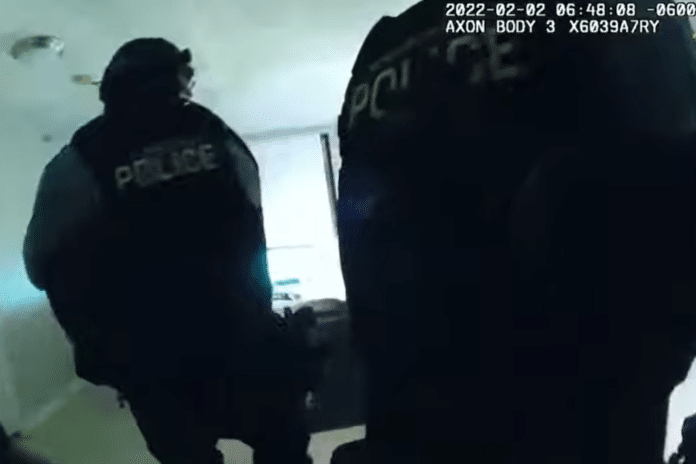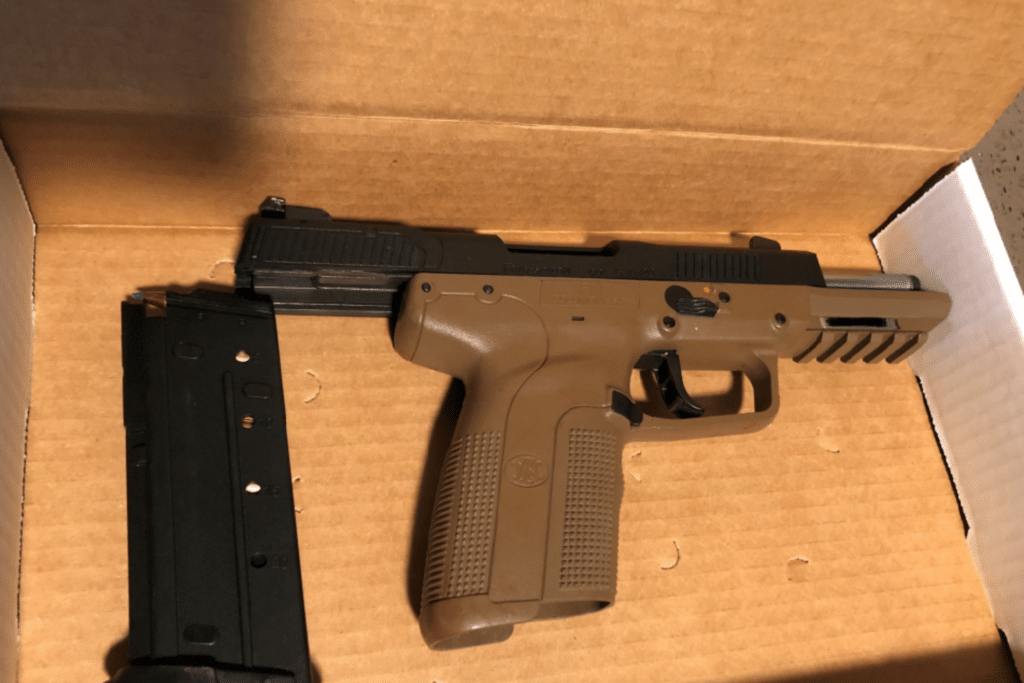
A retired Minneapolis police lieutenant spoke out in defense of the officer who shot Amir Locke in a recent interview with Alpha News.
“This met all the criteria for using deadly force. Tragedy? Absolutely. But it met all the criteria for using deadly force,” said Steve Sizer, who spent 25 years with the Minneapolis Police Department.
Locke, 22, was killed during a Feb. 2 SWAT team raid when he emerged from underneath a blanket with a gun in his hand. Minneapolis police were executing the search warrant in connection to a St. Paul homicide investigation. Locke was not named as a suspect in the warrant.
BREAKING: Minneapolis releases body-camera video from yesterday's police shooting of 22-year-old Amir Locke. (WARNING: Video is graphic.) pic.twitter.com/HBMItXLo5f
— Alpha News (@AlphaNewsMN) February 4, 2022
Locke’s death has renewed the national debate surrounding “no-knock” warrants. In Minnesota, some lawmakers would now like to ban the tactic statewide.
“That’s just taking another tool out of the tool box,” said Sizer. “They were perfectly justified in seeking a no-knock warrant.”
In their search warrant application, Minneapolis police expressed concern about the violent history of the suspects, who were posing on social media with guns, and the possible destruction of evidence.
They also had reason to believe that the suspects possessed a gun of a caliber that was capable of penetrating police body armor. This is relevant for a judge when considering a no-knock warrant, since high-caliber rounds can fly through apartment walls and injure innocent bystanders.
But it’s not relevant for an officer when considering the use of deadly force, Sizer explained.
“It could have been a .22. It could have been a .357. It doesn’t matter what the caliber was,” said Sizer. “It could’ve been a replica piece. It doesn’t make any difference.”

He believes a universal ban on no-knock warrants would have a “detrimental effect” on police and the public.
No-knock raids are designed to be intimidating, he said, and the overwhelming force makes violent offenders “less likely to resist.”
“If you announce your presence, the evidence goes down the toilet,” Sizer told Alpha News. “They announce, OK, well that allows that suspect to grab that firearm and start pumping rounds through the door and, especially in an apartment building, that’s just dangerous beyond words.”
Locke’s relatives have claimed that the 22-year-old was a licensed gun owner who was exercising “trigger discipline” by placing his finger on the barrel, rather than the trigger, of the gun.

“It takes a fraction of a second to move that finger to the trigger and swing that barrel,” said Sizer. “Things happen in fractions of seconds.”
He said the legal status of a gun owner is “immaterial” and “irrelevant” to responding officers in deadly-force scenarios.
“Going through the concealed carry process, they are also taught how to react when they come in contact with an officer. And that means don’t come up with a gun in your hand. Come up with your hands empty,” Sizer noted.
In short, Sizer believes the public should refrain from judging an officer’s conduct “with the benefit of 20/20 hindsight,” but that’s exactly what happens.
“They take something that takes place in seconds and then they go in, the media and the politicians and the protest groups, and microscopically look at this frame by frame by frame and find criticism,” he said.
Sizer referenced the U.S. Supreme Court’s 1989 Graham v. Connor decision, which said that the “reasonableness of a particular use of force must be judged from the perspective of a reasonable officer on the scene.”
“Not what the ACLU might do, or what might this politician do. It’s what would a reasonable officer do under similar circumstances,” Sizer emphasized.
While Locke’s death was “a tragedy” that no cop wants to be a part of, he believes the officers were doing what they were trained to do and reacted appropriately.
“In today’s climate, I can’t understand why anybody wants to be a police officer. There’s no political support. There seems to be very little administrative support for the cops,” he said. “And then every time something happens, you run the risk of being charged with a crime for doing your job. It just has a very chilling effect on the whole profession.”














